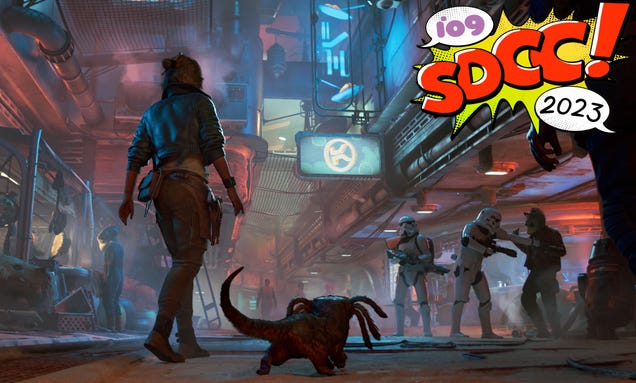WRESTLERS are the closest thing to real-life superheroes – with colourful costumes, sensational stunts and larger-than-life personas.
But there is a “curse” blighting the muscle-bound grapplers – with far too many dying untimely and often tragic deaths.
 Getty - Contributor
Getty - Contributor AP:Associated Press
AP:Associated Press Andre the Giant – The Eighth Wonder of the World – died of a heart attack
Andre the Giant – The Eighth Wonder of the World – died of a heart attackThe combination of grueling schedules, constant and intense physical competition, the proliferation of painkillers and other drugs, and other factors all play a role in this tragic trend.
Eastern Michigan University found the mortality rates of wrestlers is up to 2.9 times higher than other men in a report from 2014.
And another study by a University of Manchester academic found the death rate is significantly higher than in other sports.
The names of those who have died young reads like a heartbreaking roll call for the WWE Hall of Fame.
Eddie Guerrero was just 38 and in the prime of his career while bound for the main event when he died of heart failure.
Latino Heat was on a hot streak – and was tipped to win the World Heavyweight Championship from then-champ Batista.
He had just come off a highly successful feud against Rey Mysterio – including a legendary ladder match at SummerSlam 2005.
Having won his first world title the year before, Eddie was one of WWE’s biggest stars – beloved by fans even as he moved into playing a villain.
And then his nephew Chavo – a fellow wrestler – found him on a hotel bathroom floor still clutching his toothbrush on the morning of November 13, 2005.
The ambulance came – but he was dead, and one of wrestling’s brightest lights was gone.
But sadly his story is far from unique.
Aged just 39, The British Bulldog also suffered a heart attack, and the same fate befell the legendary Andre The Giant at just 46.
Other wrestlers to have died before they were 50 include the “Mr Perfect” Curt Henning, Umaga, Yokozuna, Earthquake, Big Boss Man, Big John Studd, Brian Pillman, and Big Daddy V.
Wrestlers are sometimes dubbed “immortals” as their exploits live in the memory of fans around the world.
But the stats show that simply far too many of them do not enjoy full lives even after they have retired.
The Ultimate Warrior suffered a heart attack aged 54 just days after being inducted into the WWE Hall of Fame and giving a farewell speech on the promotion’s flagship show Monday Night Raw.
“Every man’s heart one day beats its final beat, his lungs breathe their final breath,” Warrior – real name James Hellwig – bellowed into the microphone just hours before his own death.
“If what that man did in his life makes the blood pulse through the body of others and makes them believe deeper in something larger than life, then his essence, his spirit will be immortalised.”
The story was painfully similar to those such as “Macho Man” Randy Savage who suffered a heart attack aged 58, “Rowdy” Roddy Piper who died aged 61, and Big Van Vader who died while recovering from heart surgery aged 63.
And last year saw the death of Scott Hall – also known as Razor Ramon – who was taken off life support after suffering from three heart attacks at just 63.
Hall’s tragic death came after a public health battle that saw him heroically fight back from struggles with addiction to make a triumphant return to the fold in WWE.
It reopened the wounds for many of his wrestler pals who had seen too many of their friends gone too soon.
The mental and physical pain of those years scar hard and deep
Kevin NashBret “The Hitman” Hart spoke candidly as the wrestling world faced the grief of Hall’s passing, saying simply: “One more wrestler”.
“We’ve lost so many wrestlers from my era, and this is just one more to a list that is far too long,” wrote Hart, a seven-time world champion.
“I won’t blame any one thing, but I do believe that if the days of wrestling 300 days a year had been kinder and more considerate, if we could’ve been home with our loved ones more, many of my old friends and brothers would still be here.”
And Hall’s best friend Kevin Nash – also known as Diesel – weighed in, describing the vicious wrestling schedule faced by stars as a “meat grinder”.
Nash said: “The mental and physical pain of those years scar hard and deep, but the men that I shared my life with were such a special breed and many lifelong friends.”
 Getty - Contributor
Getty - Contributor WWE
WWE WWE
WWE Scott Hall died after bravely battling with addiction
Scott Hall died after bravely battling with addictionMany wrestlers appeared to face a perfect storm – wrestling physically intense matches multiple times a week while traveling from town-to-town suffering nagging injuries, which in turn led to personal battles with booze and drug addictions.
The demands to stay in shape and keep fighting led to potentially lethal combinations of steroids, painkillers and recreational substances.
“Mr Perfect” died from cocaine intoxication aged 44, Chyna died from a cocktail of drugs and painkillers aged 46, and Test was only 33 when he was found dead from an accidental overdose.
Wrestlers who have survived the heyday in the 80s and 90s still bare the physical scars, with WWE legend Mick Foley admitting last year he is paying a “steep price”.
The physical toll comes from the constant blows and pressure on the body to perform, as well as the inherently dangerous stunts performed by the stars.
Owen Hart tragically died aged 34 after falling from the rafters during a highly theatrical entrance – being killed in front of a packed arena of 16,000 fans.
And there is also the toll of mental scars, with many wrestlers also dying by suicide.
Ashley Massaro, Crash Holly, Chris Kanyon, Mike Awesome, Sean O’Haire, Brian Christopher, Daffney, and others are all reported to have taken their own lives.
But the most high-profile wrestling death – and one with some of the most horrific circumstances is the death of Chris Benoit.
 Getty
Getty Getty
GettyBenoit was touted as one of the most technically gifted wrestlers of all time but has now been scrubbed from WWE history due to his horrific actions in June 2007.
He was aged 40 when over the space of three days he murdered his wife Nancy, 43, and their seven-year-old son Daniel before hanging himself.
The tragedy rocked the wrestling world – and the circumstances around the murders touched all the issues linked to the deaths of wrestlers.
Drugs, steroids, and alcohol were all factors investigated in the double murder-suicide.
The exact motive remains unknown – but one of the most compelling parts of the investigation was the damage to Beniot’s brain.
After suffering multiple head injuries during his career, a post-mortem found his brain was “so severely damaged it resembled the brain of an 85-year-old Alzheimer’s patient”.
He had severe chronic traumatic encephalopathy (CTE) with damage to all four lobes of his brain and brain stem.
Benoit’s father suggested this damage may have led to the murder-suicide.
The industry was left stunned by Benoit’s crimes – and his name is now totally taboo.
And while many wrestlers from years gone by still face health problems, there has been a noticeable effort in the industry to improve working conditions and clean up the sport.
The world’s two biggest wrestling firms WWE and AEW both have mandatory drug testing – and there is a greater level of healthcare support available for wrestlers.
Certain stunts and moves are also banned or frowned upon, such as taking unprotected blows to the head that can lead to concussions.
“‘The business has changed so much since I started. I think a whole lot better,” WWE legend John Cena said in an interview with Kevin Hart.
“The talent is better taken care of. They’re more professional. They’re more understanding.
“They’re not as wasteful, they’re a lot smarter. They’re a lot healthier.”
And in 2011, Hulk Hogan said: “‘Wrestlers have been more educated, more up to speed.”
But tragedy can still strike, however, and is often totally unexpected – such as the sudden death of AEW star Brodie Lee.
Lee – known as Luke Harper in WWE – died aged 41 after suffering from the rare illness idiopathic pulmonary fibrosis, a rare condition that causes a hardening of the lungs.
His death was not directly related to his ring work, it was a cruel twist of fate.
But the loss of Lee was yet another tragedy to hit and sport that still bares some of the deepest scars imaginable.
 WWE
WWE









 Bengali (BD) ·
Bengali (BD) ·  English (US) ·
English (US) ·